
Register
Program
| 8:30 pm ET | Welcome and Introductions | Karen Boretsky, MD (moderator) |
| 8:35 pm ET | Caudals: Old Things are the New Things | Karen Boretsky, MD |
| 8:50 pm ET | Newer Block in Town: Erector Spinae, Serratus Plane Block for Pediatric Surgeries and Trauma, and Quadratus Lumborum Block | Michelle Kars, MD Abhijit Biswas, MD |
| 9:05 pm ET | Pro/Con Debate: Regional Anesthesia in Children with Neurologic Disorders | Melissa Masaracchia, MD Rani Sunder, MD |
| 9:20 pm ET | Q & A – Panel Discussion | All faculty |
| 9:30 pm ET | Adjournment |
Faculty
View faculty disclosure (PDF)
Scientific/Education Planning Committee
Andrea Chadwick, MD; University of Kansas School of Medicine, Leawood, KS
Abhijit Biswas, MD; St. Joseph's Hospital, Western University, London, ONT
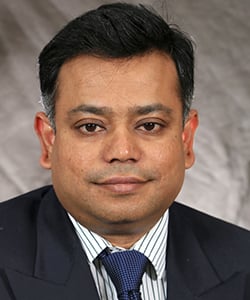
Abhijit Biswas, MD, is faculty in the department of anesthesia and perioperative medicine at London Health Sciences Centre and St. Joseph’s Hospital, Western University, London, Ontario. He graduated in India and completed anesthesia training in Ireland and Canada. He has persistent passion for academic and clinical practice in the field of regional anesthesia and would like to continue to develop his career in his field of passion. Travelling with family and painting are Dr. Biswas’ other hobbies that have maintained sanity and bliss in this crazy busy life.
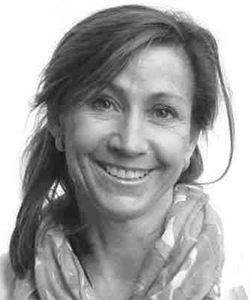
Karen Boretsky, MD, is trained in pediatric anesthesia, critical care, and regional anesthesia. She practiced pediatric and adult anesthesia for many years. In 2012, she became the director of the regional anesthesia program at Boston Children’s Hospital. Her research interests include evaluating the role of regional anesthesia in managing pain and recovery in children. She has authored articles on novel regional anesthesia techniques and presents nationally and internationally. She is passionate to find ways to minimize pain and improve safety using regional anesthesia in children.
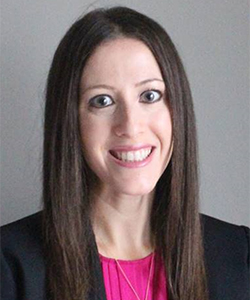
Michelle Kars, MD, completed her training in both general pediatrics and anesthesiology at New York Presbyterian Weill-Cornell in New York, followed by a fellowship in pediatric anesthesia at Children’s National Medical Center in Washington, DC. Dr. Kars is the director of the Pediatric Acute Pain Service at Northwell Cohen Children’s Medical Center in New York City and the director of Continuing Medical Education for the department of anesthesiology at Long Island Jewish Medical Center. She is an assistant professor of anesthesiology at the Zucker School of Medicine at Hofstra/Northwell where she serves as a part of the core faculty for the anesthesia residency. Her clinical interests include point-of-care ultrasound application in pediatrics as well as research in regional anesthesia techniques in infants and children to minimize opioid requirements in the perioperative period.
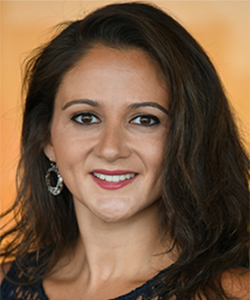
Melissa Masaracchia, MD, is an assistant professor at Children's Hospital Colorado in Aurora. She is dual fellowship trained in pediatric anesthesiology and in adult regional anesthesia and acute pain medicine. She is the director of CHCO Resident Education for the University of Colorado anesthesia residency program and co-chair of the Opioid Stewardship Committee.
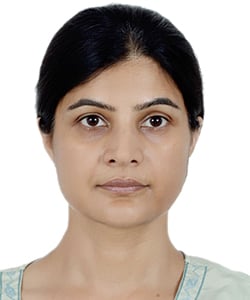
Rani Sunder, MD, is a pediatric anesthesiologist at Seattle Children's Hospital with a passion for teaching regional anesthesia. Dr. Sunder is currently working developing an interactive regional anesthesia application that would help trainees plan their blocks and log their effort. In the future, the app would have a patient facing virtual rounding function.
CME-CPD
To receive your CME certificate
- Download the Credit Claim Form.
- Indicate the number of hours you attended (credit will be verified against registration).
- Send the completed form to [email protected].
- Your certificate will be emailed to you within 1 week.
Educational objectives
After participating in this educational activity, participants should be able to:
- Recognize the benefits of caudal analgesia in children.
- Identify ways in which ultrasound-guidance can improve safety and efficacy.
- Explain newer nerve block techniques with anatomical and clinical trials.
- Discuss latest evidence to safely incorporate newer nerve block techniques in clinical practice.
- Describe the use of regional anesthesia practice in children with pre-existing neurological disease.
Target audience
The webinar is designed for pediatric anesthesiologists and anesthesia trainees that want to advance their knowledge of the practice of pediatric regional anesthesia and acute pain management.
Accreditation and credit designation statements
| Credits by Day | Maximum |
| June 17, 2021 | 1.00 |
| Total Credits | 1.00 |
Physicians
The American Society of Regional Anesthesia and Pain Medicine is accredited by the Accreditation Council for Continuing Medical Education (ACCME) to provide continuing medical education for physicians.
The American Society of Regional Anesthesia and Pain Medicine designates this internet live activity (“course”) for a maximum of 1.00 AMA PRA Category 1 Credits™. Physicians should claim only the credit commensurate with the extent of their participation in the activity.
PAs (Physicians Assistants)
AAPA accepts certificates of participation for educational activities certified for AMA PRA Category 1 Credit™ from organizations accredited by ACCME or a recognized state medical society.
Physician assistants may receive a maximum of 1.00 hours of Category 1 credit for completing this program.
Nurse Practitioners
The American Association of Nurse Practitioners (AANP) accepts AMA PRA Category 1 Credits™ from organizations accredited by the ACCME. This activity has been approved for a maximum of 1.00 AMA PRA Category 1 Credits™.
Registered Nurses
Regulations dictate that only physicians may earn CME credits, however, many state Boards of Registered Nursing accept AMA PRA Category 1 Credits™ from organizations accredited by the ACCME. Attendees
are responsible for confirming their specific board’s acceptance of ASRA-provided credits. This activity has been approved for a maximum of 1.00 AMA PRA Category 1 Credits™.
The American Board of Anesthesiology® MOCA®
This activity contributes to the CME requirements for Part II: Lifelong Learning and Self-Assessment of the American Board of Anesthesiology’s (ABA) redesigned Maintenance of Certification in Anesthesiology Program® (MOCA®), known as MOCA
2.0™. Please consult the ABA website, www.theABA.org, for a list of all MOCA 2.0 requirements. Maintenance of Certification in Anesthesiology
Program® and MOCA® are registered certification marks of The American Board of Anesthesiology®.
ASRA is an ABA-approved provider and, as a service to ASRA members and participants, CME credits are reported to the ABA. Participants must include their correctly formatted ABA ID number (34567890) during the online evaluation and credit claim process
available at the conclusion of the activity. Once the online evaluation and credit claim process is closed, certificates will be issued and credits reported to the ABA. After this time, participants may request their CME certificate by contacting
[email protected], but ASRA will no longer report credits to the ABA, which will then be the individual participant’s responsibility.
International credits
Royal College of Physicians and Surgeons of Canada
The Royal College of Physicians and Surgeons of Canada has agreements based on the mutual recognition of credit points with the American Medical Association for live and web-based
(synchronous or asynchronous) educational events. You may submit your CME certificate directly for credit recognition of this accredited group learning activity (Section 1) as defined by the Maintenance of Certification program of The Royal
College of Physicians and Surgeons of Canada. For more information, visit: www.royalcollege.ca
European Accreditation Council for Continuing Medical Education (UEMS-EACCME)
The UEMS-EACCME has agreements based on the mutual recognition of credit points with the American Medical Association for live and e-learning educational
events. Each medical specialist should claim only those hours of credit that he/she actually spent in the educational activity. The EACCME is an institution of the European Union of Medical Specialists (UEMS): www.uems.net
Commercial support disclosure
No industry support has been received for this educational activity.
Disclosure and resolution of personal conflicts of interest
Click here to view all faculty disclosure. In accordance with the ACCME’s Standards for Commercial Support and related policies, ASRA is committed to ensuring balance, independence, objectivity, and scientific rigor in its CME/CPD activities. Those in control of the educational content disclose all relevant relationships (financial or other) with any commercial interest that they or their spouse/partner have had within the past 12 months. If an individual refuses to disclose, they are disqualified from participating. Disclosure information is evaluated and conflicts of interest resolved. Disclosure is made to participants prior to the activity. Participants are asked to evaluate the objectivity and independence. Off-label or investigational use of a therapeutic product is also disclosed.
Check Out These Upcoming Programs
-
Apr16
-
Mar21